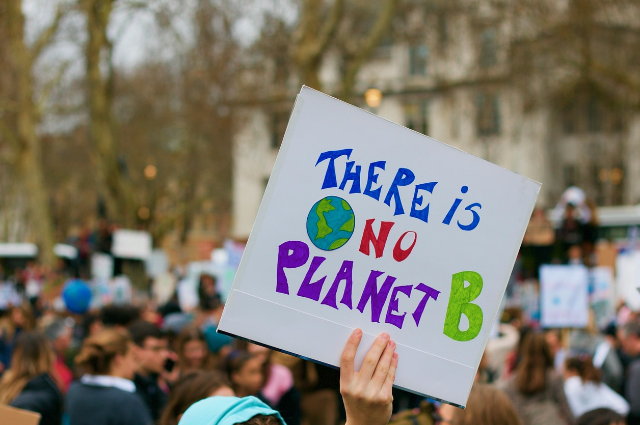
Image by Kevin Snyman from Pixabay
Abstract: World Environment Day, observed annually on 5th June, has evolved into the most prominent global platform for environmental public outreach. This paper embarks on a rigorous analytical journey to uncover the rationale behind the selection of 5 June, scrutinizing its historical provenance, its institutional enshrinement, and its philosophical underpinnings. The study critically investigates the political and ecological motivations embedded in this choice and situates the day within the broader trajectory of environmentalism and sustainable development. Through interdisciplinary analysis, encompassing political ecology, environmental history, and international relations, this article posits that 5 June is not merely a calendar date but a chronotope of ecological consciousness. The article further explores the potentialities and pitfalls of symbolic environmentalism in a world grappling with an existential ecological crisis.
1. Introduction:
1.1. Symbolism and Environmentalism in the Postmodern World
In the tumultuous backdrop of anthropocenic anxieties, where human-induced ecological disruptions increasingly threaten planetary stability, the institution of symbolic environmental observances emerges as a mechanism of socio-political mobilization. The designation of 5 June as World Environment Day represents one such effort to crystallize a global environmental consciousness. Yet, what seems like a benign and inspirational initiative demands a more nuanced interrogation. Why was this date chosen? What socio-political calculus underlies its institutionalization? How does this date function within the dialectics of environmental awareness and international diplomacy? These questions form the nucleus of this investigation. In an epoch marked by climate-induced displacement, biodiversity attrition, and a degradation of ecological ethics, the symbolic resonance of 5 June acquires profound implications.
2. Historical Context:
2.1. The Stockholm Milieu and the Birth of Environmental Multilateralism
The genesis of World Environment Day on 5 June 1972 is deeply entangled with the United Nations Conference on the Human Environment, held in Stockholm. The conference itself was not merely a bureaucratic assemblage but a watershed moment in the history of environmental multilateralism. The Cold War world had until then marginalized environmental issues, subsuming them beneath geopolitical and ideological antagonisms. However, the Stockholm Conference, propelled by escalating global concerns over pollution, resource depletion, and ecological fragility, initiated a paradigmatic shift. The opening day of the conference—5 June—was thus chosen to eternally commemorate the dawning of institutionalized global environmental consciousness.
The Stockholm Declaration, the seminal outcome of the conference, articulated a revolutionary recognition: that the environment is not merely a background to human progress, but a central determinant of it. Moreover, the conference led to the creation of the United Nations Environment Programme (UNEP), institutionalizing environmental stewardship at a global scale. The selection of 5 June was therefore not incidental, but profoundly intentional, signifying a foundational moment in ecological diplomacy.
3. The Philosophical Semantics of Choosing a Date
To choose a date for an international observance is to embed a historical narrative within the fabric of collective memory. In designating 5 June, the UN transformed a chronological event into a phenomenological signifier of environmental awareness. The day is not just a temporal marker; it is an invocation, a secular ritual aimed at mobilizing cognitive, emotional, and political energies around the sanctity of the natural world.
The philosophical semantics of 5 June lie in its capacity to universalize ecological concern without erasing contextual particularities. It enacts a global communion where diverse cultural, political, and ecological realities converge in a synchronized moment of reflection and action. It performs what theorist Michel Foucault would term a 'heterotopia'—a space that is both real and symbolic, mirroring and contesting all other spaces of environmental governance.
4. The Metamorphosis of 5 June: From Ritual to Resistance
Initially perceived as a ceremonial observance, 5 June has gradually metamorphosed into a potent platform for ecological resistance and advocacy. From the global South to the industrial North, environmentalists, indigenous communities, and civil society actors have appropriated the day to amplify subaltern ecological narratives. Campaigns addressing issues like desertification, marine pollution, climate justice, and biodiversity loss have found a resonant arena on this day.
Moreover, the thematic focus of each year—ranging from 'Only One Earth' to 'Beat Plastic Pollution'—serves not just as a rhetorical slogan but as a strategic framing device. These themes shape global environmental discourse, influence policy agendas, and mediate public imaginaries. Thus, the day transcends performative ritualism and becomes a crucible for environmental agency.
5. The Role of UNEP and the Architecture of Environmental Governance
The operationalization of World Environment Day is orchestrated by the United Nations Environment Programme (UNEP), an institutional progeny of the Stockholm Conference. UNEP functions not merely as an administrative body but as a discursive agent that curates and disseminates environmental knowledge. Through campaigns, reports, and partnerships, it constructs a moral and epistemic scaffolding around environmental issues.
The annual designation of a host country further decentralizes the observance, allowing regional ecological concerns to attain global visibility. Countries leverage this platform to showcase environmental innovations, articulate vulnerabilities, and consolidate diplomatic alliances. In doing so, 5 June becomes a theater of both national prestige and global solidarity.
6. The Political Ecology of Environmental Celebrations
World Environment Day, like any global observance, is not immune to the ideological tensions of global governance. Critics argue that it risks becoming a vehicle for "greenwashing"—where states and corporations indulge in superficial ecological displays to obfuscate deeper complicities in environmental degradation. Such symbolic politics can dilute the urgency of ecological action, transforming systemic crises into episodic spectacles.
However, this critique does not invalidate the day’s significance. Rather, it underscores the need for critical vigilance. Environmental celebrations must be embedded within broader structural transformations—legal reforms, sustainable technologies, and ecological ethics. When combined with substantive action, symbolic observances like 5 June can catalyze a cultural shift towards ecological responsibility.
7. Contemporary Relevance Amid Planetary Crisis

In an age defined by the Anthropocene—a geological epoch marked by human dominance over Earth's systems—World Environment Day assumes an unparalleled urgency. The Intergovernmental Panel on Climate Change (IPCC) warns of tipping points beyond which ecological restoration becomes implausible. Amidst such apocalyptic forecasts, 5 June becomes a moment of reckoning.
It galvanizes multi-stakeholder action—from grassroots mobilizations to intergovernmental negotiations. It anchors environmental discourse in a moral vocabulary, compelling humanity to confront its complicity in planetary destruction. It also functions as a pedagogical tool, inculcating environmental ethics in the public psyche through education, art, media, and civic engagement.
8. Global South and the Decolonization of Environmental Narratives
One of the most transformative potentials of 5 June lies in its capacity to amplify voices from the Global South. Historically marginalized in environmental governance, countries in Asia, Africa, and Latin America bear disproportionate burdens of ecological harm despite minimal historical responsibility. World Environment Day has increasingly become a conduit for articulating these asymmetries.
By hosting the event in diverse geopolitical contexts and highlighting indigenous ecological knowledge systems, the observance can serve as a site of epistemic justice. It allows for the decolonization of environmental narratives, foregrounding pluralistic worldviews and alternative models of sustainability rooted in local cosmologies and practices.
9. Symbolism versus Substantivism: The Dilemma of Environmental Observances
A recurring tension in the celebration of World Environment Day is the dichotomy between symbolism and substantivism. Symbolism refers to the performative dimensions of observance—speeches, slogans, posters—while substantivism entails tangible outcomes—policy changes, behavioral shifts, technological innovations. The danger lies in the former eclipsing the latter.
To avoid this, stakeholders must employ the observance as a strategic entry point for long-term ecological transformations. Governments should align their environmental policy cycles with the day, NGOs must integrate it into annual planning frameworks, and educational institutions ought to embed its themes into curricula. Only then can the symbolic energies of 5 June be transmuted into substantive change.
10. Conclusion: Towards an Ecological Civitas
World Environment Day, observed annually on 5 June, transcends its commemorative function; it embodies a collective aspiration to recalibrate the human relationship with the Earth. Far from being a mere symbolic ritual, it encapsulates a moral, ecological, and civilizational imperative. Its historical anchoring in the Stockholm Conference of 1972 and subsequent institutionalization through the United Nations Environment Programme (UNEP) offer it both legitimacy and permanence within global environmental governance. Yet, the true value of this observance lies not in its ceremonial iterations, but in its power to invoke introspection, to galvanize action, and to foster a deeper civilizational shift towards sustainability.
We are no longer mere stewards of a fragmented environment; we are inhabitants of a fragile, interconnected biosphere teetering on the edge of collapse. The climate crisis, loss of biodiversity, deforestation, desertification, water scarcity, and pollution are not isolated catastrophes—they are symptoms of a deeper disjuncture in our ontological and ethical orientations towards nature. In this context, 5 June serves not as a pause for reflection alone but as a prophetic call—a kairos moment—for humanity to reimagine its place within the web of life.
To move forward, we must cultivate what may be termed an ecological civitas—a planetary moral community that recognizes the Earth not as a reservoir of exploitable resources, but as a living, breathing system deserving of intrinsic respect and legal personhood. The term civitas—borrowed from classical political thought—evokes the idea of a community united not merely by geography or economy, but by shared values and ethical commitments. An ecological civitas thus envisions a world where political boundaries dissolve before ecological imperatives, where the rights of rivers, forests, animals, and future generations are enshrined within legal and moral frameworks, and where sustainability is not a peripheral concern but a foundational ethic of governance, education, and everyday life.
This reimagining demands more than policy shifts or technological fixes. It requires a radical transformation of consciousness—a metaphysical revolution that places the sanctity of life and the integrity of ecosystems at the core of human aspiration. Religious traditions, indigenous worldviews, ecological philosophy, and even quantum science converge in affirming the interconnectedness of all existence. 5 June, therefore, is not merely a date on the calendar; it is a spiritual and intellectual locus for reawakening a sense of cosmic kinship.
Furthermore, World Environment Day must evolve from being a platform of performative politics to one of transformative praxis. Governments, corporations, civil society, and individuals must move from rhetorical commitment to radical accountability. The greenwashing of public conscience must be replaced by the greening of public policies. Environmental education must be integrated across disciplines, and youth must be empowered as architects of an ecocentric future, not passive recipients of a deteriorating legacy.
In honoring 5 June, we do not merely commemorate the institutional history of environmentalism; we recommit to the unfinished project of ecological justice. It is an affirmation of our interdependence, a proclamation of our shared destiny, and a declaration of our willingness to co-create a future where the flourishing of the planet and the well-being of all its inhabitants are not antithetical, but synonymous. It is a call to dismantle the anthropocentric arrogance that has brought us to the brink and to cultivate instead a reverent humility—one that recognizes the Earth as both origin and destiny, both sanctuary and inheritance.
Thus, the observance of World Environment Day is not an end in itself but a beginning—a threshold from which humanity can pivot towards a new covenant with the Earth. In this covenant lies the promise of an ecological civitas: a world governed not by domination and consumption, but by care, reciprocity, and planetary solidarity.
